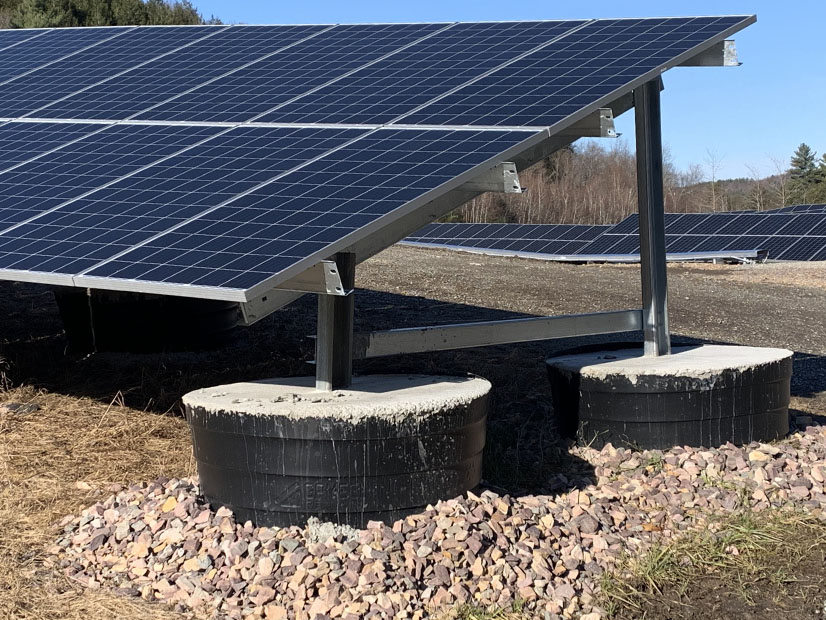To increase the pace of development for clean energy resources, Massachusetts Gov. Maura Healey (D) signed an executive order Tuesday creating a state Commission on Clean Energy Infrastructure Siting and Permitting.
The goal of the commission, the administration said in a press release, is to identify and reduce barriers for clean energy infrastructure and cut permitting timelines. The commission will work with state agencies within the Executive Office of Energy and Environmental Affairs (EEA) and make recommendations to government officials and legislators.
“This commission represents our administration’s efforts to bring people together and build consensus to tackle one of the most complex issues of our time,” Healey said, adding that “the clean energy transition can’t wait.”
The announced commission members, who were sworn in on Tuesday, represent a variety of interests, including labor, environmental justice and climate groups, electric utilities and the clean energy industry.
“With these members leading this effort, we are confident that the recommendations will be smart, balanced and ready for action,” said EEA Secretary Rebecca Tepper.
The commission also will make recommendations about how best to engage with communities in expedited permitting processes and ensure the benefits of the energy transition extend to all state residents.
“We’re going to need a lot of new infrastructure, and we’re going to need it fast,” said Lt. Gov. Kim Driscoll. “With these stakeholders at the table, we’re going to build serious consensus on how to tackle this challenge in a way that ensures environmental justice communities don’t bear a disproportionate burden, greenspace and other development priorities are protected, and we can all share in the benefits of clean energy.”
The executive order also tasked the commission with convening a “Siting Practitioner Advisory Group” to advise the commission on technical issues. That group will be chaired by Mary Beth Gentleman, a former assistant secretary for policy at the EEA and partner at Foaley Hoag.
The co-chairs of the legislature’s Joint Committee on Telecommunications, Utilities and Energy (TUE), Rep. Jeff Roy (D) and Sen. Mike Barrett (D), both have listed permitting and siting reform as top priorities of the current legislative session and are on the commission. (See Checking in on Clean Energy at The Mass. Legislature.)
Rep. Roy introduced a bill (H.3215) this session that would create an electric infrastructure permitting office to issue consolidated permits covering all necessary state and local approvals for clean energy infrastructure, which the office would need to issue within seven months of an application.
“What we’re trying to do,” Roy told NetZero Insider this year, “is move the community input back to the beginning of the process, give folks an idea of what they’re trying to do and how it’s going to help them and then streamline the permitting process so it runs parallel.”
The TUE committee played a large role in the omnibus climate bills passed in the legislature’s two prior sessions, and the committee’s leaders have said they intend to construct another climate bill in the current session, which ends Nov. 15.
Healey’s executive order also creates an Interagency Siting and Permitting Task Force to inform the commission, with experts from the EEA, Economic Development, Housing and Livable Communities, and Transportation Executive Offices.
A final report from the commission is due at the end of March 2024.




